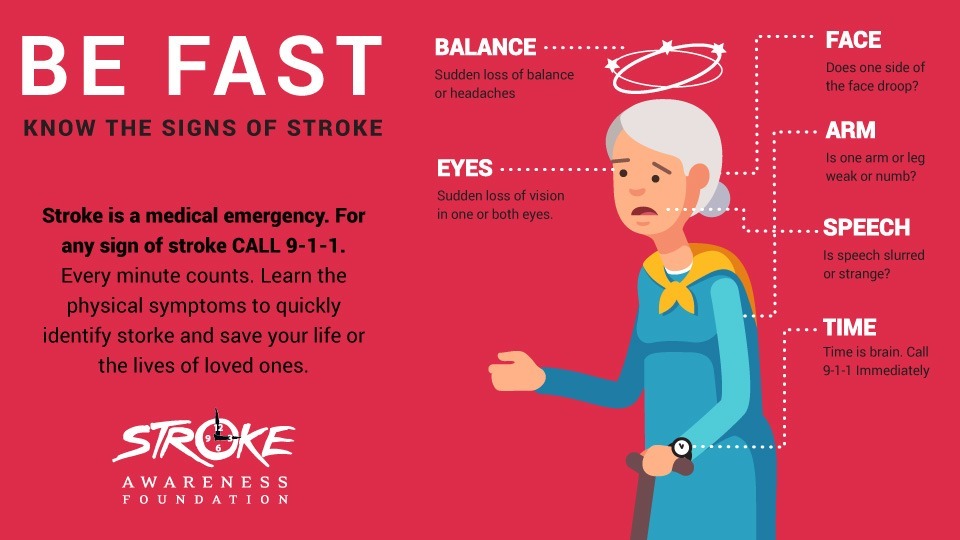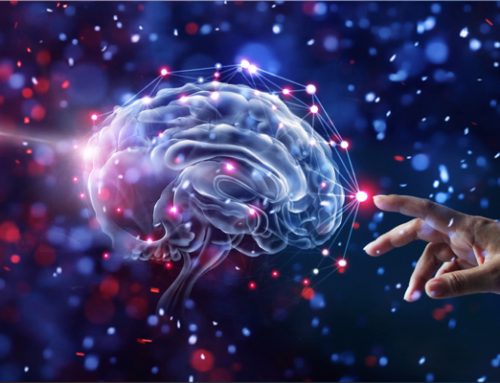Pediatric survivor shows that stroke strikes at any age
The 2018 Cheetahs girls volleyball season was off to an exciting start. In the opening game just a week prior, 12-year-old Mariah Fisher’s turn at serving the ball earned her distinction as the team’s highest scorer. She was anxious for game two.
In the team huddle at warm up, Mariah became flush with embarrassment when her words tumbled in a slur as she attempted to speak. She was apprehensive about speaking again and recalls telling herself that she simply needed to remember how to talk. Mariah’s teammate and friend, however, recognized the seriousness of this unusual behavior and immediately alerted their coach of Mariah’s slurred speech.
At the same time, Mariah’s mother Rebecca was on the gymnasium floor setting up chairs for the game. She recalls the coach finding her and telling her that she thought Mariah might be having an allergic reaction to something. Turning to her daughter, Rebecca had difficulty deciphering what Mariah was trying to say.
She heard enough to know that something was wrong and within minutes was driving Mariah to Kaiser Permanente San Jose Medical Center. As Mariah’s condition declined enroute to the hospital, Rebecca saw her child appear to drift in and out of sleep. Mariah recalls feeling exceptionally tired in a way she had never experienced.
Upon arrival at the hospital, Rebecca left Mariah in the car to run into the ER for help. Mariah, meanwhile, had opened the car door to follow Rebecca. The last thing Mariah remembers of September 25, 2018, is falling to the ground and lying on the concrete wanting to call out to her mom. “I knew she wouldn’t be able to hear me, so I thought I’d just lie there and rest my eyes,” says Mariah. When Rebecca returned to her car seconds later, she found her daughter lying unconscious on the asphalt.
A CT scan revealed that Mariah had suffered a hemorrhagic stroke which occurs when a blood vessel ruptures in the brain and causes bleeding. Stroke can be treated only at a stroke-certified hospital. Santa Clara County is home to 10 Primary Stroke Centers, including Kaiser Permanente San Jose; and three Comprehensive Stroke Centers, which are able to treat even the most complex stroke cases, such as a hemorrhagic stroke. Mariah was transported immediately by ambulance to Lucile Packard Children’s Hospital Stanford where she underwent emergency brain surgery and craniectomy. She remained in a coma for a week.
While the risk for stroke increases with age, Mariah is proof that it can happen at any time. In fact, an estimated one in seven strokes occurs in adolescents and young adults. It is the fifth leading cause of death in the United States and the number one cause of serious adult disability. Because stroke must be treated at a stroke-certified hospital, it is paramount to recognize stroke symptoms and call 911 immediately.
An arteriovenous malformation (AVM) in the brain triggered Mariah’s stroke. This rare condition is a tangle of blood vessels that causes abnormal connections between arteries and veins. As is common among many with an AVM, the Fishers were unaware that Mariah had the condition.
Mariah suffered extensive physical and cognitive deficits, including aphasia, as a result of stroke. When she woke from coma, the right side of her body was paralyzed and she was unable to speak. “Losing my speech was the worst part. I couldn’t communicate what I wanted or needed,” Mariah says. She was hospitalized for about seven weeks, four of which were spent in inpatient rehabilitation at Santa Clara Valley Medical Center. Here, Mariah conquered a rigorous schedule of intensive occupational, physical, speech, and other therapies six days a week. “Therapy was like a fulltime job for Mariah,” says Rebecca.
While Mariah was gaining mobility and motor functions, Rebecca was absorbing newfound skills of her own. “I stayed with Mariah the entire time, so I was always learning how to help and keep her safe,” says Rebecca, noting that the most important thing was to ensure that Mariah wore her helmet anytime she got up. Until the skull piece was reattached, which wouldn’t happen until January 2019, Mariah’s brain was vulnerable to injury.
In the few years since Mariah survived her stroke, she has reached significant milestones in her recovery. Her most recent angiogram revealed that radiation therapy to correct AVM was successful, and she walks unassisted, speaks eloquently, and has adapted to becoming left-handed. “It feels like I’ve been a leftie my whole life. I’d have to learn to be a righty again,” she laughs.
Mariah is also an inspirational speaker, national award-winning artist – a feat accomplished left-handed, former youth ambassador for The Aneurysm and AVM Foundation, and recipient of the 2023 Pediatric Hero Award from the American Stroke Association. In addition, this energetic and optimistic role model has been able to experience such teenage rites of passage as school dances, braces, and getting her driver’s license. “I’m very proud of that,” she says of her license.
Looking ahead, Mariah is focused on taking a public speaking class at her local community college and booking more public speaking engagements. One of her goals is to create awareness of the signs of stroke at any age and to use her own experience as a survivor to inspire others. Knowing signs of stroke and acting quickly can save lives.
As for Rebecca, deep faith and humor come to mind when she describes her family’s journey with pediatric stroke. She says that while faith doesn’t explain why stroke happened to Mariah, it helps in giving a sense of peace. “Some good things may come out of it,” she says. And humor in the face of adversity? For the Fishers, normalcy – as much as was possible – was particularly important to recovery in the early days. “We still tried to have a sense of humor because that’s the way we were before this happened,” she says.
Today, mother and daughter continue to tease and joke about life’s ups and downs. The only exception is when it comes to the seriousness of seeking medical attention at the first sign of stroke. Rebecca is emphatic when she says, “It’s better to err on the side of caution when something seems wrong.”
BE FAST. Research shows that three weeks of memory are lost for every minute that a person is suffering from stroke. Call 911 immediately at the first signs of stroke. Time is brain.





